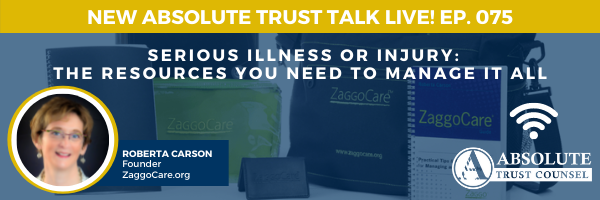Being the parent of a special needs child is an exceedingly demanding role that comes with innumerable responsibilities geared toward helping that child navigate the world around them in the most enriching and gratifying way. The most important of these responsibilities is seeing that the child receives the best education possible, maximizing their social and behavioral skills.
This is a challenging task. The term “special needs” covers a wide range of disabilities, so the nature of that education will vary considerably from child to child. However, these children all have one thing in common — the right to a free and appropriate public education. And, because the term “appropriate” is so subjective, it’s often a point of contention between school district officials who insist that they’re doing the very best they can to fulfill their obligations and parents of special needs children who maintain that the accommodations being provided just aren’t accomplishing what they need to.
Maybe you’re the parent of a special needs child and have become frustrated in your efforts to secure the best possible education for that child — an education that’s guaranteed by law. Or perhaps you know someone who’s at such an impasse. If so, you’ll want to tune into the latest episode of Absolute Trust Talk as Kirsten Howe speaks with California Special Education Rights Attorney Jennifer Chang – Jennifer’s firm centers on fighting for the rights of children with special needs to get the education and services they need. In her practice, she litigates for those children and educates their parents on becoming better advocates for their needs.
In this episode, we’re going to discuss:
- The broad spectrum of disabilities that special needs education must address.
- The role that Individualized Education Plans (IEPs) play in tailoring the educational experience for a special needs child and why parents must be incredibly diligent in ensuring that their child’s IEP accurately covers ALL of the services.
- Why seeking the services of a special education attorney even before an impasse with the school district is in the best interests for all parties.
- How school districts blame COVID for staffing shortages and why that isn’t an excuse when it comes to special needs support.
And more.
Special needs students are not always given the attention and support they need. We hope this episode helps you and those you know better understand the tools and processes needed to help get a special needs student the education they are entitled to.
Big Three from Episode #110:
- Parents usually hire Jennifer in either one of two circumstances. First, their child’s school district has told them their child doesn’t qualify for special education services. The parents have already hired their own assessor whose findings conclude otherwise, so litigation comes down to the special needs child’s eligibility. In the second scenario, the disagreement between parents and the district centers on the special education services or placement the district has agreed to provide. For example, the parents might request a one-on-one aide, and the district won’t accommodate them.
- Learning disability issues often don’t manifest themselves in the early stages of a child’s education. In the first few years of their education, almost all students only have a homeroom setting to adapt to. Because teachers are more familiar with their needs, they can better acclimate the classroom environment to fit those needs. As a child reaches middle and high school age, they come to rely on a number of teachers for their education and spend proportionally less time with each of them. This more challenging schedule and lack of familiarity usually exposes learning disabilities that weren’t evident when that child was younger. School districts are often reluctant to provide services and accommodation that the student hadn’t needed before.
- Every Individualized Education Plan (IEP) a school district offers to parents will include waiver language that absolves the district of any legal responsibility if an inaccurate assessment of their special needs child is included or if the services and accommodations that child needs are omitted. So, it’s very important that the parents NOT sign any such document without consulting an appropriate attorney. The school district will use the parents’ signature on an IEP as proof that they’ve given their blessing to the course of the district’s educational action.
Time-stamped Show Notes:
0:00 Introduction
1:35 In this episode, we’re proud to welcome Special Education Attorney Jennifer Chang to the show.
3:03 Listen as Jennifer shares more about how she decided to become a Special Education Attorney.
4:20 Next, Jennifer shares more about the types of students she helps – those with autism, dyslexia, and more.
5:39 Often, after a diagnosis, school districts tend to see a special needs case as a medical issue, and the student should be fine accessing a normal curriculum.
6:28 Special needs students often do okay early in their education and then encounter difficulties later on due to the number of teachers working with them.
8:12 There was a time when special needs students were educated apart from the general student population, but changes in federal education law now include this mandate.
10:28 An Individualized Education Program (IEP) plays a pivotal role in a special needs student’s education. Here’s what it entails and why it’s often a point of conflict.
13:28 When the parents of a special needs student and a school district disagree on an education plan, the school can file a complaint against the parent, which is often the basis for litigation.
15:08 In order for the child to progress in their education, it’s a good idea for parents to file suit as soon as possible if the school district refuses to meet education needs.
18:05 In addition to IEPs, there are also what are known as 504s, which don’t provide much protection and serve students with medical accommodations – not learning disabilities.
20:41 When a district’s IEP doesn’t accomplish its objectives, litigation is often necessary to speed up student progress.
22:01 Next, Kirsten and Jennifer discuss a couple of common scenarios that lead families to require Jennifer’s services.
23:48 The pandemic has hampered school districts’ ability to fulfill their obligations to special needs students – staffing shortages with aides and teachers.
25:23 On the other hand, when districts claim to be short-staffed, it isn’t a valid excuse because outside services can be used.
26:15 Q&A: Is it good to consult with an attorney before there’s an issue? YES!
27:44 Any agreement with the school district will contain waiver language, so you have no case if you settle with the school. Don’t sign anything without talking to your attorney!
28:26 Q&A: Are there still times when the student has to be placed in a non-public school? Yes, especially if functional needs are a challenge.
Here’s how to get in contact with Jennifer:
Jennifer Chang
Attorney, Special Education Law
Offices in San Jose, Buena Park and Los Angeles (Main)
W: (323) 931-5270
jennifer@jenchanglaw.com
www.educationrightsattorney.com
Resources/Links Mentioned in this Episode:
- Absolute Trust Talk Episode 099: A Creative Solution to the Special Needs Housing Challenge
- Absolute Trust Talk Episode 095: Special Needs Care Planning: It’s About More Than Just Legal Documents
- Absolute Trust Talk Episode 041: Special Needs Trusts: Don’t Let an Inheritance Blow Up Your Government Benefits
- Absolute Trust Talk Episode 016: Behind the Scenes of Financial Planning for a Family With Special Needs
- Absolute Trust Talk Episode 010: Thinking Outside the Family – Special Needs Trusts & Professional Fiduciaries
- Absolute Trust Talk Episode 008: Financial Planning for Families with Special Needs Individuals
- Absolute Trust Counsel would love to offer access to our Incapacity Planning resource page: https://AbsoluteTrustCounsel.com/Incapacity-Planning/. We’ve collected our top planning information all in one place so listeners can find videos, guidebooks, blog posts, and a host of information with tips and strategies on implementing, planning, and protecting themselves and their loved ones.
- We’re pleased to provide you with a library of e-books to address common estate planning questions and concerns in practical, easy-to-understand language. https://AbsoluteTrustCounsel.com/Resources/.
- ASK KIRSTEN: If you’d like Kirsten to answer your question on the air, please email her at Info@AbsoluteTrustCounsel.com.
[AD] Are you a resident of Walnut Creek or the greater East Bay needing help with your estate plan? At Absolute Trust Counsel, your family’s safety is our number one priority. We understand how complicated it can be to know if you’re making the right legacy planning decisions, which is why we’re here to make things easier. Schedule a free discovery call, and let’s talk about how we can help build the right plan for you and your family.
[AD] The job of a trustee isn’t as easy as one may think. You must give legal notices, retitle assets, file tax returns, understand a legal document, and perform a variety of tasks most people find unfamiliar. As a trustee, if you forget a step or make a mistake, you could be held liable. Protect yourself, have a plan, and find out the next steps about your specific trust. Get started now by scheduling a 20-minute discovery call with Absolute Trust Counsel. During this introductory call, we will gather information about your trust administration, review our trust administration process with you, and answer any questions you may have. Our goal is to help you get the job done right!





